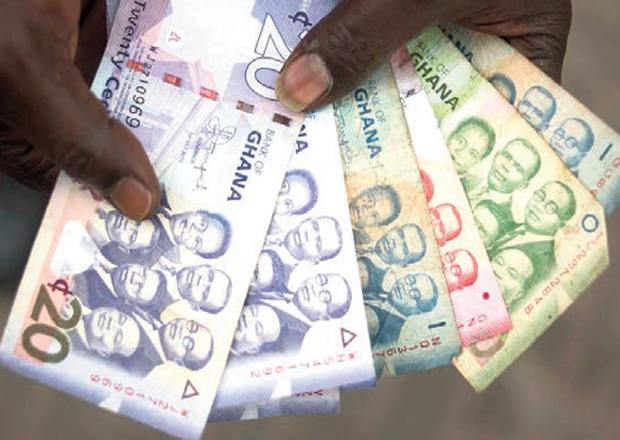The foreign exchange market though came under some seasonal pressures in February and early March this year, the local currency continues to recover its value.
According to the Bank of Ghana (BoG), such pressures emanated mainly from the strengthening of the US dollar in international markets, and payments made for the energy and corporate sectors.
These were compounded by delays and uncertainties associated with the second tranche of the cocoa loan inflow and World Bank’s disbursement of Budget Support, Dr. Ernest Addison disclosed at a press conference in Accra yesterday.
He said price developments for the first two months together with output variations in the three main export commodities, resulted in a comparatively lower trade surplus relative to what was recorded a year ago in 2023.
A trade surplus of US$0.39 billion was recorded for the first two months of 2024, compared to a surplus of US$0.86 billion for the comparative period of 2023. This was due to higher import growth relative to exports.
Total export receipts increased by 1.6 percent to US$2.9 billion mainly on the back of gold and crude oil exports. Gold exports rose by 16.6 percent to US$1.3 billion driven mainly by increased production from both the large scale and small-scale miners.
Earnings from crude oil exports was US$0.62 billion, an increase of 12.4 percent, benefiting from increased production from the new wells on the Jubilee southeast.
Cocoa exports, both beans and products, declined by 28.4 percent to US$0.51 billion, reflecting the current challenges in the cocoa sector. Other exports, including non-traditional exports, remained virtually unchanged at US$0.48 billion.
Total imports increased to US$2.5 billion, up by 26.2 percent. Both oil and non-oil imports increased with oil imports increasing by 11.2 percent to US$0.60 billion and non-oil imports up by 45.8 percent to US$1.88 billion.
Indicating that international reserve buffers continue to improve, Dr Addison said the stock of Gross International Reserves (GIR), as at the end of February 2024, increased further to US$6.2 billion, enough to cover 2.8 months of imports of goods and services, up from the stock position of US$5.9 billion (2.7 months of import cover) at the end of December 2023.
The level of reserves, defined to exclude pledged assets and Ghana Petroleum Funds, increased to US$4.0 billion (1.8 months of import cover) at the end of February 2024 from a stock position of US$3.7 billion (1.7 months of import cover) as at end December 2023, driven mainly by the gold for reserves programme and the IMF second tranche disbursement.
“In the first two months of 2024, prices of Ghana’s export commodities trended mixed. Cocoa and crude oil prices gained on the international markets, while the price of gold declined slightly during the period. Cocoa prices rose significantly to US$5,712.9 per tonne in February 2024, representing an increase of 34.9 percent on year-to-date basis, due to a significant drop in production from Ghana and Ivory Coast.
Crude oil prices gained 5.8 percent to settle at an average price of US$81.7 per barrel, compared to US$77.3 per barrel in December 2023, supported by tight supply as the geopolitical tensions persist amid ongoing production cut from OPEC.
“Gold prices, however, recorded a marginal decline of 0.5 percent year-to-date to settle at an average price of US$2,025.73 per fine ounce mainly on the back of strong US dollar and elevated bond yields,” he added.
By Samuel Boadi
